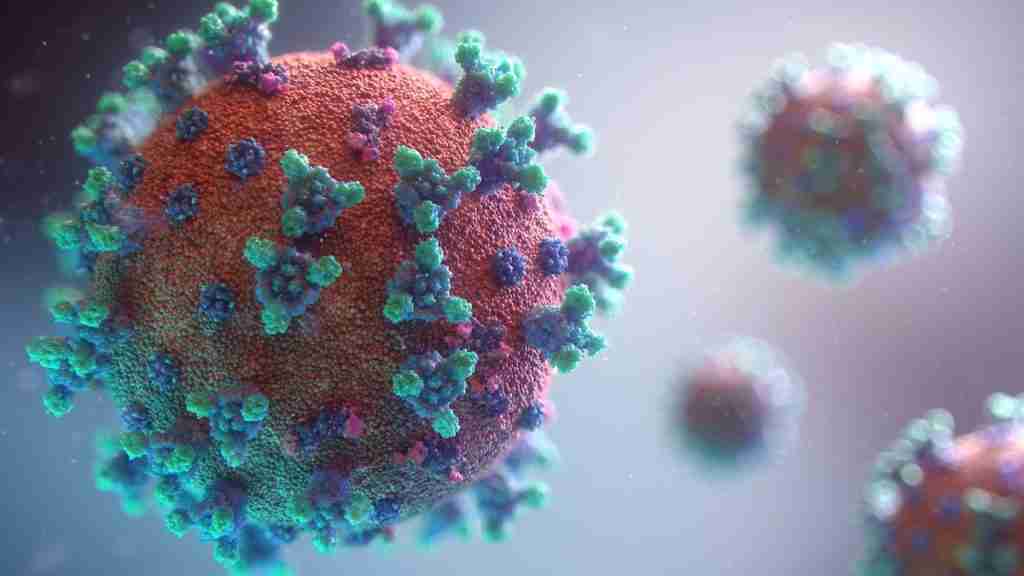The Epstein-Barr Virus (EBV) – also referred to as human herpesvirus 4 – is a type of herpes virus and one of the most common human viruses worldwide.
Estimates suggest EBV infects over 90 percent of the global population. Although the vast majority of people who become infected do not experience complications, EBV can lead to other illnesses, including infectious mononucleosis (sometimes called mono) and, in rare cases, cancer.
What Are the Symptoms of EBV?
Most people become infected with the Epstein-Barr virus as children and do not experience symptoms or experience minor symptoms indistinguishable from other short-lived mild illnesses. Teenagers and adults who become infected with EBV typically do show symptoms, which subside in two to four weeks. These symptoms include the following:
- Enlarged spleen
- Fatigue
- High fever
- Inflamed and sore throat
- Rash
- Swollen liver
- Swollen lymph nodes
Symptoms of an EBV infection generally go away on their own. However, the virus does not. Instead, it becomes latent or inactive in the body and can reactivate at a later date. Reactivations are unlikely to cause symptoms, although immunocompromised people may develop symptoms.
How Does EBV Spread?
EBV spreads quickly through bodily fluids, particularly saliva. Therefore, EBV is often transmitted through kissing, sharing food and beverages, using the same eating utensils or toothbrush, or holding toys infected children have drooled on or put in their mouths (the virus likely stays alive and active as long as the toy or object is moist). EBV can also spread through semen and blood during sexual contact, organ transplants, and blood transfusions.
People infected with EBV can spread it for several weeks, including the period before they develop symptoms. Even reactivated EBV can spread to others, regardless of how long ago the original infection occurred.
How Is EBV Diagnosed?
Often, suspected EBV infections are diagnosed without any specific testing. In some cases, patients may choose to get a blood test that detects antibodies correlated to the virus. These blood tests include the mono spot test, viral capsid antigen (VCA), early antigen (EA), and EBV nuclear antigen (EBNA).
Doctors will examine the results of the patient’s blood test, their symptoms, overall health, and underlying conditions to make a diagnosis.
How Is EBV Treated?
EBV has no specific treatment or vaccine, and because it is an infection caused by a virus, it does not respond to antibiotics. Instead, patients with EBV focus on alleviating unpleasant symptoms by doing one or more of the following:
- Avoiding high-intensity exercise, contact sports, and heavy lifting
- Drinking enough fluids
- Ensuring they get enough rest
- Using over-the-counter pain relief medication to minimize their sore throat and fever
Does Epstein-Barr Cause Cancer?
The short answer is yes. Although it is not common, EBV can increase a person’s risk of developing some cancers. Studies suggest EBV contributes to 1.5 percent of all human cancer diagnoses in the world.
How does EBV cause cancer? The infected cells become mutated, which can lead to cancerous changes in the future. The cancers associated with EBV are generally rare, and according to the American Cancer Society, include:
- Cancers that develop in the back of the nose called nasopharyngeal cancers
- Some types of fast-growing lymphoma, including Burkitt’s lymphoma
- Stomach cancer called gastric adenocarcinoma
Cancers related to EBV are more prevalent in parts of Southeast Asia and Africa than in the United States.
Do Any Other Viruses Cause Cancer?
Yes. Viruses other than EBV can cause cancer. Research suggests that viral infections are responsible for between 15 and 20 percent of all cancers. Some of the viruses that may increase the risk of cancer include the following:
- Human papillomaviruses (HPVs). HPVs are a collection of over 150 viruses, some of which lead to papillomas, more frequently referred to as warts. HPVs can grow on the skin and mucous membranes, such as in the mouth or vagina. Some types of HPV are the leading cause of cervical cancer, the second most commonly diagnosed cancer in women. Regular screening has made cervical cancer less common in the US.
- Hepatitis B virus (HBV) and hepatitis C virus (HCV). Both HBV and HCV can lead to a liver infection known as viral hepatitis, increasing a person’s chance of developing liver cancer. In the US, under half of liver cancer cases are caused by HBV or HCV.
- Human immunodeficiency virus (HIV). Although HIV may not directly cause cancer, it can increase a person’s risk of developing life-threatening cancer. The immune system plays a critical role in destroying newly-grown cancer cells – in some cases, the immune system is effective enough to prevent the cancerous cells from forming a tumor. A person with HIV may have a weak immune system, giving new cancer cells the time needed to multiply and grow. HIV infections are linked to higher chances of developing cervical cancer, Kaposi sarcoma, and some types of non-Hodgkin lymphoma.
Strengthening the Immune System to Fight Cancer Naturally
There’s no denying just how important the immune system is to long-lasting health and well-being. That’s why we offer holistic cancer treatments that strengthen, rather than sabotage, the body’s natural healing processes. To learn more about our science-backed treatments, get in touch with our patient care coordinator team today.
Resources:
- Bakkalci, Deniz et al. “Risk factors for Epstein Barr virus-associated cancers: a systematic review, critical appraisal, and mapping of the epidemiological evidence.” Journal of global health vol. 10,1 (2020): 010405. doi:10.7189/jogh.10.010405
- El-Sharkawy, Ahmed et al. “Epstein-Barr Virus-Associated Malignancies: Roles of Viral Oncoproteins in Carcinogenesis.” Frontiers in oncology vol. 8 265. 2 Aug. 2018, doi:10.3389/fonc.2018.00265
- Farrell, Paul J. “Epstein-Barr Virus and Cancer.” Annual review of pathology vol. 14 (2019): 29-53. doi:10.1146/annurev-pathmechdis-012418-013023
- Hoover, Karla. and Karla Higginbotham. “Epstein Barr Virus.” StatPearls, StatPearls Publishing, 11 August 2021.
- Thompson, Matthew P, and Razelle Kurzrock. “Epstein-Barr virus and cancer.” Clinical cancer research : an official journal of the American Association for Cancer Research vol. 10,3 (2004): 803-21. doi:10.1158/1078-0432.ccr-0670-3




